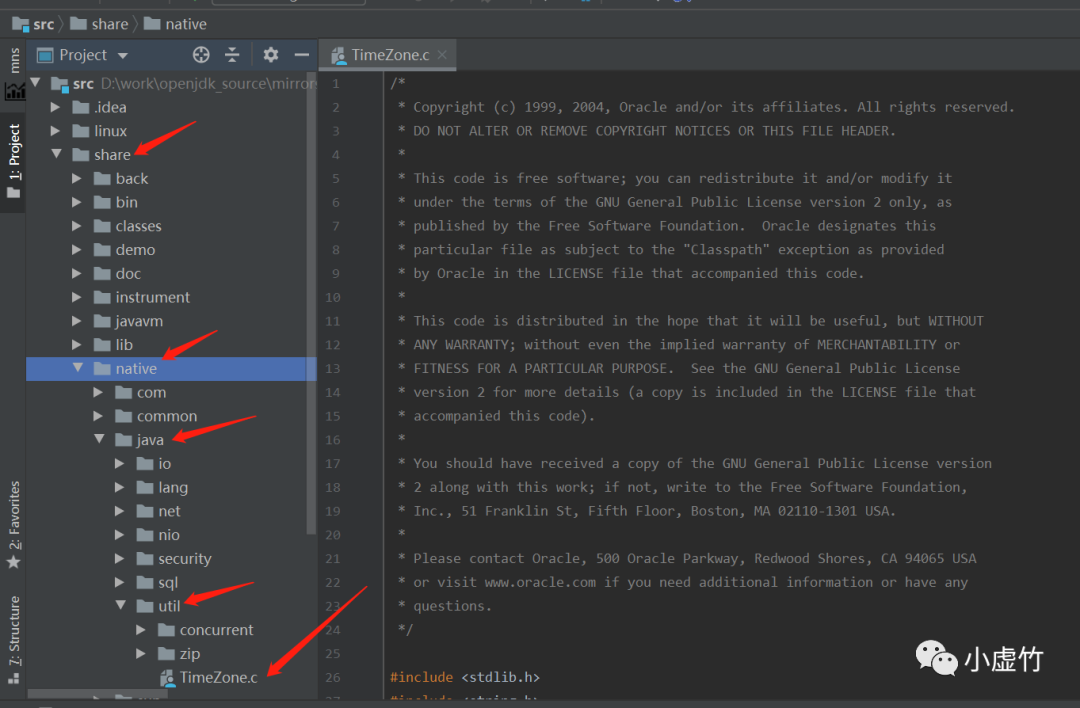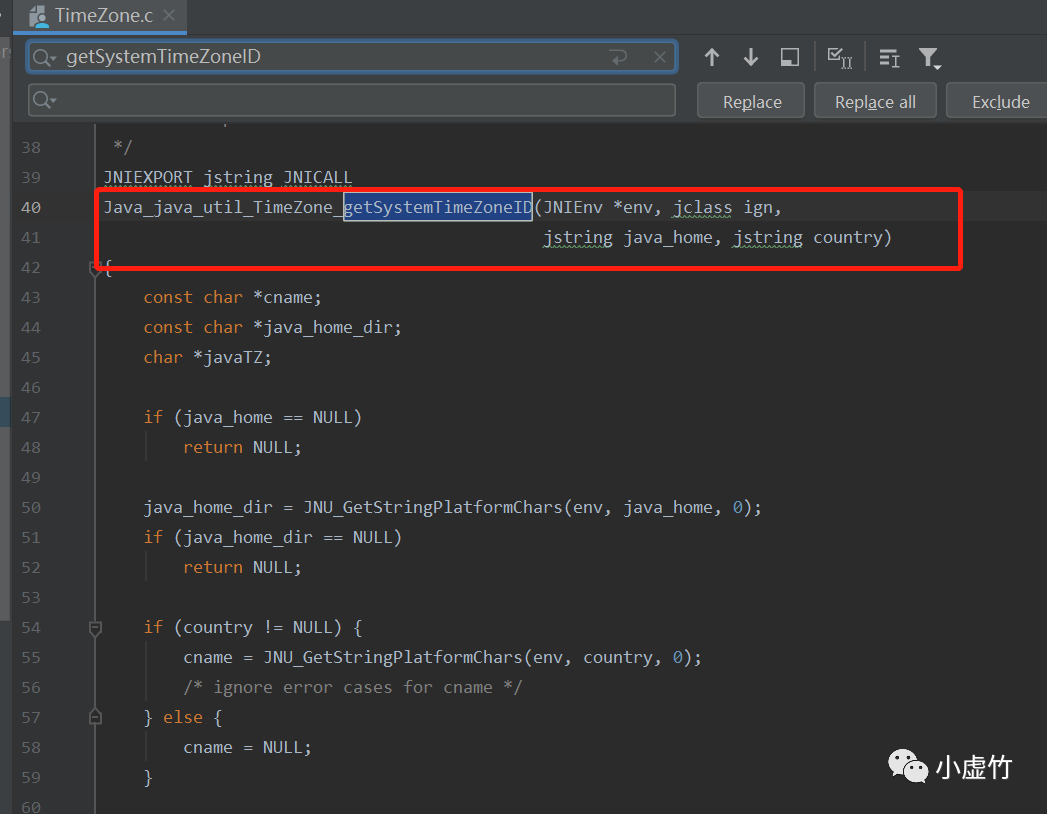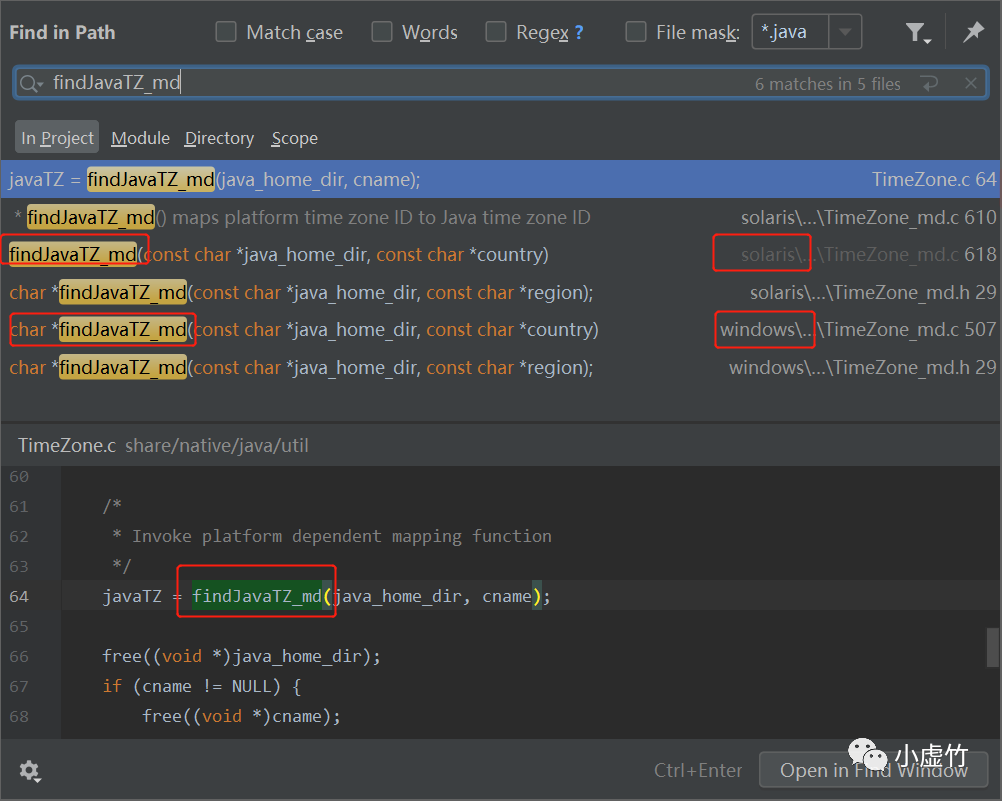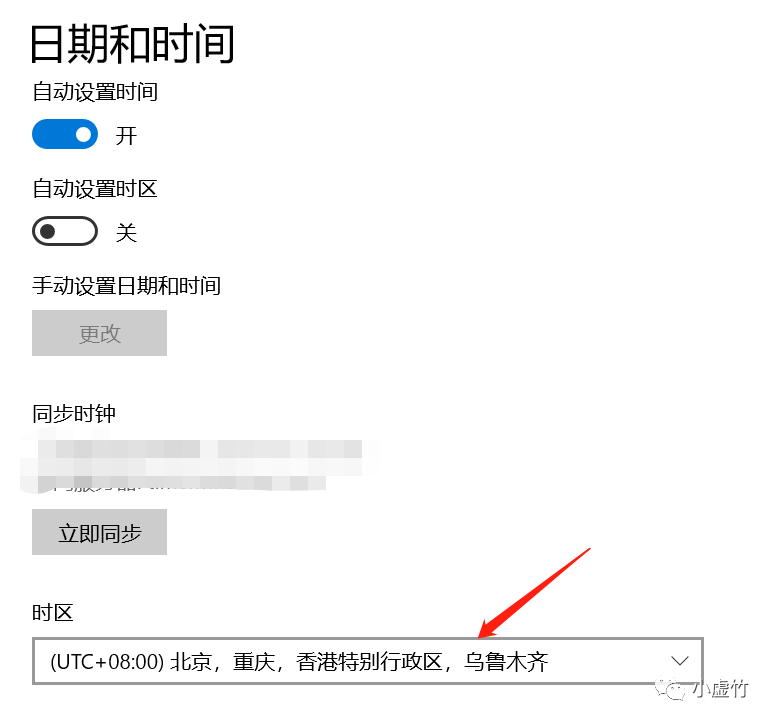JDK最底层源码,掌握native用法!
❝❤️作者简介:大家好,我是小虚竹。Java领域优质创作者🏆,CSDN博客专家🏆,华为云享专家🏆,掘金年度人气作者🏆
❤️技术活,该赏
❤️点赞 👍 收藏 ⭐再看,养成习惯
❞
场景
有探索欲的同学,应该会跟我一样,在看JDK源码时,跟到最后,会出现native方法,类似下面这个方法
/**
* Gets the platform defined TimeZone ID.
**/
private static native String getSystemTimeZoneID(String javaHome);
看到这个native ,说明已经挖到核心了,到了这一步,还是不清楚是怎么获取系统的默认时区的,那怎么办,JDK代码只能跟到这里。
转战OpenJDK,源码下载方式:https://gitee.com/mirrors/openjdk
什么是native
native是一个计算机函数,一个Native Method就是一个Java调用非Java代码的接口。方法的实现由非Java语言实现,比如C或C++。
native的源码怎么看呢
以**private static native String getSystemTimeZoneID(String javaHome)**为例
getSystemTimeZoneID方法所在的package java.util.TimeZone;
如图所示,找到TimeZone.c下的getSystemTimeZoneID方法


/*
* Gets the platform defined TimeZone ID
*/
JNIEXPORT jstring JNICALL
Java_java_util_TimeZone_getSystemTimeZoneID(JNIEnv *env, jclass ign,
jstring java_home, jstring country)
{
const char *cname;
const char *java_home_dir;
char *javaTZ;
if (java_home == NULL)
return NULL;
java_home_dir = JNU_GetStringPlatformChars(env, java_home, 0);
if (java_home_dir == NULL)
return NULL;
if (country != NULL) {
cname = JNU_GetStringPlatformChars(env, country, 0);
/* ignore error cases for cname */
} else {
cname = NULL;
}
/*
* Invoke platform dependent mapping function
*/
javaTZ = findJavaTZ_md(java_home_dir, cname);
free((void *)java_home_dir);
if (cname != NULL) {
free((void *)cname);
}
if (javaTZ != NULL) {
jstring jstrJavaTZ = JNU_NewStringPlatform(env, javaTZ);
free((void *)javaTZ);
return jstrJavaTZ;
}
return NULL;
}
重点:调用不同平台相关的映射函数
/*
* Invoke platform dependent mapping function
*/
javaTZ = findJavaTZ_md(java_home_dir, cname);
去查找findJavaTZ_md方法时,发现存在分别在solaris和windows两个目录下。

查了下这两个目录的差别:
因为OpenJDK里,Java标准库和部分工具的源码repo(jdk目录)里,BSD和Linux的平台相关源码都是在solaris目录里的。
原本Sun JDK的源码里平台相关的目录就是从solaris和windows这两个目录开始的,后来Unix系的平台相关代码全都放在solaris目录下了,共用大部分代码。
作者:RednaxelaFX
链接:https://www.zhihu.com/question/58982441/answer/170264788
来源:知乎
「简单的理解就是:」
「window系统下,使用windows目录下编译的JDK代码」
「unix相关的平台下,使用solaris目录下编译的JDK代码」
了解不同系统下findJavaTZ_md方法执行
windows系统
/*
* Detects the platform time zone which maps to a Java time zone ID.
*/
char *findJavaTZ_md(const char *java_home_dir, const char *country)
{
char winZoneName[MAX_ZONE_CHAR];
char winMapID[MAX_MAPID_LENGTH];
char *std_timezone = NULL;
int result;
winMapID[0] = 0;
result = getWinTimeZone(winZoneName, winMapID);
if (result != VALUE_UNKNOWN) {
if (result == VALUE_GMTOFFSET) {
std_timezone = _strdup(winZoneName);
} else {
std_timezone = matchJavaTZ(java_home_dir, result,
winZoneName, winMapID, country);
}
}
return std_timezone;
}
注释写得很清楚,获取“Time Zones”注册表中的当前时区
/*
* Gets the current time zone entry in the "Time Zones" registry.
*/
static int getWinTimeZone(char *winZoneName, char *winMapID)
{
...
}
时区的设置方式:

那时区上的选择值是从哪取到的,上面有说了,是在注册表中取值
打开注册表 :Regedit-->
计算机\HKEY_LOCAL_MACHINE\SOFTWARE\Microsoft\Windows NT\CurrentVersion\Time Zones\
unix相关的平台
findJavaTz_md()方法的注释上写得很清楚了:将平台时区ID映射为Java时区ID
/*
* findJavaTZ_md() maps platform time zone ID to Java time zone ID
* using /lib/tzmappings. If the TZ value is not found, it
* trys some libc implementation dependent mappings. If it still
* can't map to a Java time zone ID, it falls back to the GMT+/-hh:mm
* form. `country', which can be null, is not used for UNIX platforms.
*/
/*ARGSUSED1*/
char *
findJavaTZ_md(const char *java_home_dir, const char *country)
{
char *tz;
char *javatz = NULL;
char *freetz = NULL;
tz = getenv("TZ");
#ifdef __linux__
if (tz == NULL) {
#else
#ifdef __solaris__
if (tz == NULL || *tz == '\0') {
#endif
#endif
tz = getPlatformTimeZoneID();
freetz = tz;
}
/*
* Remove any preceding ':'
*/
if (tz != NULL && *tz == ':') {
tz++;
}
#ifdef __solaris__
if (strcmp(tz, "localtime") == 0) {
tz = getSolarisDefaultZoneID();
freetz = tz;
}
#endif
if (tz != NULL) {
#ifdef __linux__
/*
* Ignore "posix/" prefix.
*/
if (strncmp(tz, "posix/", 6) == 0) {
tz += 6;
}
#endif
javatz = strdup(tz);
if (freetz != NULL) {
free((void *) freetz);
}
}
return javatz;
}
步骤:
1、使用< Java home>/lib/tzmappings,。如果没有找到"TZ"变量,就进行第2步
2、 tz = getPlatformTimeZoneID(); 执行Linux特定的映射,如果找到,返回一个时区ID,否则返回null
【Linux】Centos7修改系统时区timezone方式:
timedatectl

修改时区
timedatectl set-timezone Asia/Shanghai

3、对比/etc/localtime与"/usr/share/zoneinfo目录下的文件,如果一致,就返回时区ID,没有则到第4步
4、返回到GMT

